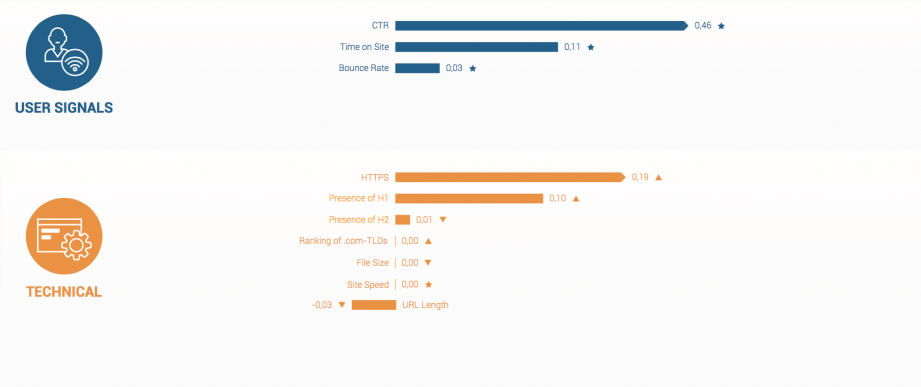One question that tends to show up on search engines these days is what is SEO? SEO is short for search engine optimization. Search engine optimization is the art and science of driving targeted website traffic onto one’s website from search engines. So in a more understandable term, Search engine optimization is basically a methodology of tactics, techniques and strategies which is used with the aim of enlarging or greaten the numbers of visitors to a website by acquiring a high-ranking position in the search results page that pops up on search engines like Google, Yahoo, Bing among many others. All major search engines mentioned have primary search results and this is where web pages, including other content talking about local listings or videos, are shown as well as ranked based on their relevance to users according to the search engines.
With excellent content, this encourages people to link to your pages. It also gets to show Google that those pages of yours are authoritative and engaging. Content like this is being regarded or termed as a search engine success. This is majorly what Google cares about and it includes authentic and interesting pages in its search results.
Research has it that results that appear higher up the page when been searched tend to receive an increased Click Through Rate (CTR) which makes them have more traffic. SEO is about making your search engine result relevant to the user's search query so that more people click the result when shown in the search. This way, snippets of text and metadata are optimized to make sure that your snippet of information is likable in the context of the search query to get a high CTR (click through rate) from search results. Also, studies even went on to show that websites on the first page of Google receive almost 95% of clicks.

How SEO Works
The question of how SEO works can be challenging to answer. When talking about search engine optimization, it can be complicated at times considering all sorts of factors that affect your ranking. Though this doesn’t look that hard to understand. The basic logic is that search engines always care to give out the very best of service to their users and the only way they can achieve this is by rendering results on the search engine pages that are not only important to what the searcher is trying to look for but also of high quality. Driving search engine traffic is not hard, but it does take much work to make it happen. While trying to optimize a website, the search engines will technically do various things like carrying out a scan or what we otherwise know as a crawl on this website to get a better understanding of what the website is all about. The search engines will give those who are searching for keywords or certain topics more relevant results through this means. Similarly, the search engines will scan the site to specify how easy it is to read and navigate. And by doing this, it compensates user-friendly websites with higher rankings on the results page of the search engine.
Let's take a look at this instance. Let us say that there is this article of yours titled “how to optimize your articles” and your objective is to get this particular content of yours to some people’s attention. All that is required is to try to optimize the article so that when anyone searches for a phrase like “optimize your articles,” your article pops up among the top result displayed.
Some processes are required for search engine optimization to take place finally. The three stages are Technical SEO, On-page SEO and Off-page SEO.
Technical SEO
The Technical SEO, which we discussed a bit earlier, is only focusing on the settings you need to configure in order to ease work on search engine crawlers. Technical SEO is a very vital phase in the whole SEO process. This means that if it isn’t handled with the best hands, you might have problems and what this will result to is that it is likely that your SEO efforts will not generate the results you expected. It’s a one-time stuff which once gotten correctly, doesn’t need to be reviewed afterward. The key with this is to be careful and mindful of the indexing and crawling because a mistake with them can negatively affect one's ranking.
On-Page SEO
The On-page SEO is only targeting majorly the content as well as other elements found on a page. The primary objective of this is to make signals available to search engine crawlers for them to understand what the context of your content is all about. The On-page SEO is subjected to three major categories; content, keyword selection and finally, architecture .

Your Content is always one part you don’t want to mess with when handling SEO matters. This means that your number one target to do well with SEO is to produce great content. The ability to deliver the best quality content should always be at the back of your mind because it is the starting point for successful search engine optimization effort.
Make sure you choose your keyword before you start writing, as it is also a crucial part of great content. In all cases, try to make sure your keyword is present in strategically important places. Also, use your keyword throughout your content and avoid jamming your keyword together because this may hurt your work. And have it at the back of your mind that contents grab much favor from search engines when they are kept up-to-date more often and by rewriting them and adding new information to them.
Talking about the keyword selection, a large share percentage of SEO often concentrate or circle keyword selection. Keywords are the dictatorship of what every piece of content is all about. Keyword research is not something you do once and abandon, it’s a thing you constantly have to work on always.
The third one is Architecture. For your website to be regarded as an adequate one, your website architecture must be great. It must come with a mobile-friendly design, keywords smartly added to URL, as well as being fast when it comes to loading among many others. All these are structured under architecture.
Off-Page SEO
You don’t get to have direct control over the factors of off-page SEO. They are more or less of a website promotion which is performed outside the range of a website. Few factors are to be noted on this one.
Trust is one thing search engines have tried to handle with care and importance these days. This is how they ascertain whether you have a valid site that visitors can embark on and put their trust in. This comes with having a quality backlink or guest post from a site with page and domain authority. A guest post helps in getting a backlink to your website, either in the article itself or in your author bio. Your ranking will be positively affected so far has it is coming from a well known and reliable site.
Links are another factor concerned with building off-page SEO. It needs to be chosen with care has it still has to refer to backlinks. And backlinks that are generated through spamming only alerts search engines of your wrongdoing and the penalty for this is to be banned. It should also be considered that while trying to build up links, not all websites will like to link out to varieties of websites. They know well enough that this might depreciate the value of their site.
Social media should not be mistaken with link building. When search engines like Google see that someone likes a brand or your works or pages on a social network, they’re more likely to show them results from that brand. The involvement rate of social content that strongly matches with higher organic rankings is what makes a website valuable to search engines. Things like click throughs on images, comments likes, etc. help to achieve this. The concept is straightforward. The more that people on a social share, comment or like your content, the greater its engagement rate and the more backlinks you will be getting for that particular piece of content. Just as it is important to have some links to your website, the same thing goes for social media. The numbers of shares help in landing some viral hits on search engines. Also, with quality shares by influential and valid people, search engines tend to value such and with that, you get to move up their rankings.
Building citations is a practice that should be adopted more often. What this does mainly is to help improve a site’s search rankings in a precise location. Since citations often include things like business name, business address and phone number, this can go on to affirm that details given on websites are real – for instance, having details wherein people can find their locations.







Wait while comment section loads...